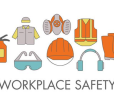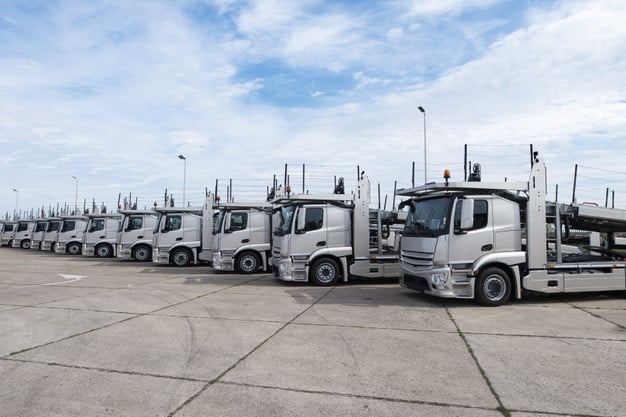For every business owner, late client payments can cause unnecessary stress to your business finances. This is especially true for small and medium-sized businesses (SMBs).
It’s even worse when you consider that it will cost you even more if you’re not getting paid on time. You’ll have to spend more valuable company resources to chase clients for their payments.
A study found that American small and medium-sized businesses spend an average of 15 days every year chasing payments from clients. It also revealed that a third of the SMBs experience and anticipate experiencing the negative effects of late client payments.
One industry that is particularly prone to late payments is the trucking industry. It’s not unusual for clients to take 30, 60, and even as much as 90 days to pay their freight bills.
For business owners in this industry, receiving payments feels like it’s sort of a waiting game. Delayed freight bills can cause chaos on the business’s cash flow, cash flow of the business, restricting its growth in the process. If your trucking company is running low on cash, but you have unpaid client invoices, you need to consider invoice factoring.
Here is a detailed guide on how you can identify the best freight factoring companies in the market, such as factorfinders.com. But first, let’s take a brief look at what truck factoring involves and how it works.
What is Truck Factoring?
In case you’re coming across the term truck factoring’ for the first time, you may be unsure about how it can benefit your trucking business.
Factoring is a form of invoice finance designed to help businesses who receive their payments on terms. It involves selling unpaid invoices to a third party (a factor) minus a discount.
For trucking companies, factoring is a convenient method of improving business cash flow. The factoring process often includes credit monitoring services whereupon receiving factorable invoices, the factor assesses the creditworthiness of the billed client and not the trucking company.
If approved, the factoring provider provides payment to the trucking company, enabling them to receive the cash value of the invoice instantly, rather than wait for several weeks or months before getting paid.
Unlike a business loan where you might have to pass credit checks, submit a business plan, or satisfy other criteria that have made it hard for new SMBs to get financing, factoring allows businesses to collect funding immediately.
So, does the business pay back the cash advance? Not exactly. To understand how the factor makes back their money, consider the following scenario:
Customer A has their goods delivered by Trucker B but has 60 days to pay their invoice. Trucker B visits Factor C and factors the invoice delivered to Customer A. Trucker B receives the cash advance from Factor C, who then becomes the new invoice holder. When Customer A makes the payment, it is collected by Factor C.
Factor C deducts the total value of the cash advance provided to Trucker B and forwards the balance to Trucker B.
Let’s look at how you can identify a good truck factoring company to partner with.
Choosing a Truck Factoring Company That Suits Your Needs:
There are plenty of truck factoring firms in the market that offer various services to trucking businesses. From a client’s perspective, it can be quite an overwhelming experience, scouting and choosing the right factoring company.
Fortunately, you can identify a good factor by considering the following questions:
What Type of Factoring do They Provide?
Depending on the factoring company, there are two main types of invoice factoring: recourse and non-recourse factoring.
Recourse, or factoring with recourse, means that after a trucking company factors an invoice and the invoiced client fails to pay the invoice, the trucker is responsible for paying back the factor the total amount of the advance received from factoring.
Recourse factoring is often cheaper and common with big businesses since they can afford to pay back the factor.
On the other hand, non-recourse factoring works almost the way as recourse. The difference is that the factor is liable for unpaid invoices. This approach absolves the trucking business of any debt collection responsibilities and protects them from debt.
However, because the factor carries a higher risk, non-recourse factoring is more costly than recourse factoring.
You need to consider what mode of factoring between the two is better suited to your business and if it’s available with your ideal factor.
What Are the Terms of the Factoring Agreement?
As a trucking business owner, you want as much flexibility from a factoring agreement as possible. You need to consider the factoring and advance rates, as well as the length of the agreement.
Factoring companies differ in regards to how they go about their business. Advance rates range between 70% to 95% depending on the factor. As for factoring rates, the average differs from 1% to 3.5% every 30 days.
When it comes to the length of the agreement, some only work on long-term contracts (usually one year), whereby the trucking business provides the factor with a minimum number of invoices within a time frame. Other factors, however, have a no-minimum policy.
Are There Any Hidden Charges?
Before jumping into discussing advance rates, it would be an excellent idea for you to gain a general understanding of how the factor structures its fees.
Factoring companies buy invoices at a discount. This discount can either be a cut-rate or a one-time fee, depending on how long the invoiced client takes to pay the factor.
Other possible charges include charging extra to cover the costs of running background credit checks on the invoiced clients, administrative fees, and money transfer fees.
Another class of fees that you could be charged includes penalty fees or fines where old invoices were submitted, misdirected payments, and premature contract termination in the case of a long-term agreement.
Make sure the company you choose to work with is direct and transparent about all its costs. Watch out for factors that advertise their prices in a way that makes it hard for you to determine the full cost of the service.
What Industries Do They Specialize in?
As you do your research, you’ll find that most factoring companies claim that they provide services in many industries.
While the claim might be somewhat valid, the best factoring companies often give priority to a few particular industries. As a result, they have a high level of expertise in the industries, understand their nature, and have created an extensive customer base of stakeholders operating within the select fields.
As a trucking business owner, you want to work with a factor who knows your industry’s ins and outs. You can find out if a factor is familiar with your industry by asking industry-specific questions and assessing their answers. Most factoring companies would also be glad to provide client references, so don’t hesitate to ask for a few.
How Long Is the Float Period?
The float period is the length of time a company has to wait before customer payment reflects on their account.
Nearly every factoring company has specific provisions concerning the float period. For most factoring companies, the float period usually lasts between 1 to 3 working business days.
Some factoring companies add stipulations dictating a factoring fee increment if the factor holds the outstanding invoice for a longer period than was agreed. For most trucking companies with late-paying clients, this might be an issue.
For instance, a trucker signs a factoring contract that states that the factor can charge 2% of the value of the invoice for invoices that are 31 to 60 days old and a further 3% for invoices that are outstanding for 61 to 90 days. If payment is made on the 59th day, it might reflect on the 61st day, increasing the costs of financing the cash advance.
If possible, try and discuss with the factor and negotiate a reduction in their float period. If the factor does not budge, it would be vital that you find a different factoring company that doesn’t make you wait before they update received payments.
Is the Customer Service Responsive?
Knowing if a factoring company has good customer service can be challenging. All the same, it’s essential that you try and find out for two reasons.
First, good customer service is vital for your clientele. The factor interacts with your customers while collecting payments, so it would be best for you to use a company that treats your customers as well as you would.
Secondly, good customer service is vital for you as the client of the factor. You want to work with a company that prioritizes your concerns and are fast and efficient in handling your issues.
Consider Partnering With factorsfinders.com for Your Factoring Needs:
Choosing an ideal invoice factoring company means you have to consider several varying aspects, as highlighted above.
While there is no one best option, Factor Finders surely stands out among the rest. The factoring solutions provider understands the struggle trucking companies go through when it comes to financing. The company provides reliable service allowing truckers the flexibility to factor as few or as many invoices as they need for their businesses.
Visit factorfinders.com today to ask for a quote!





























